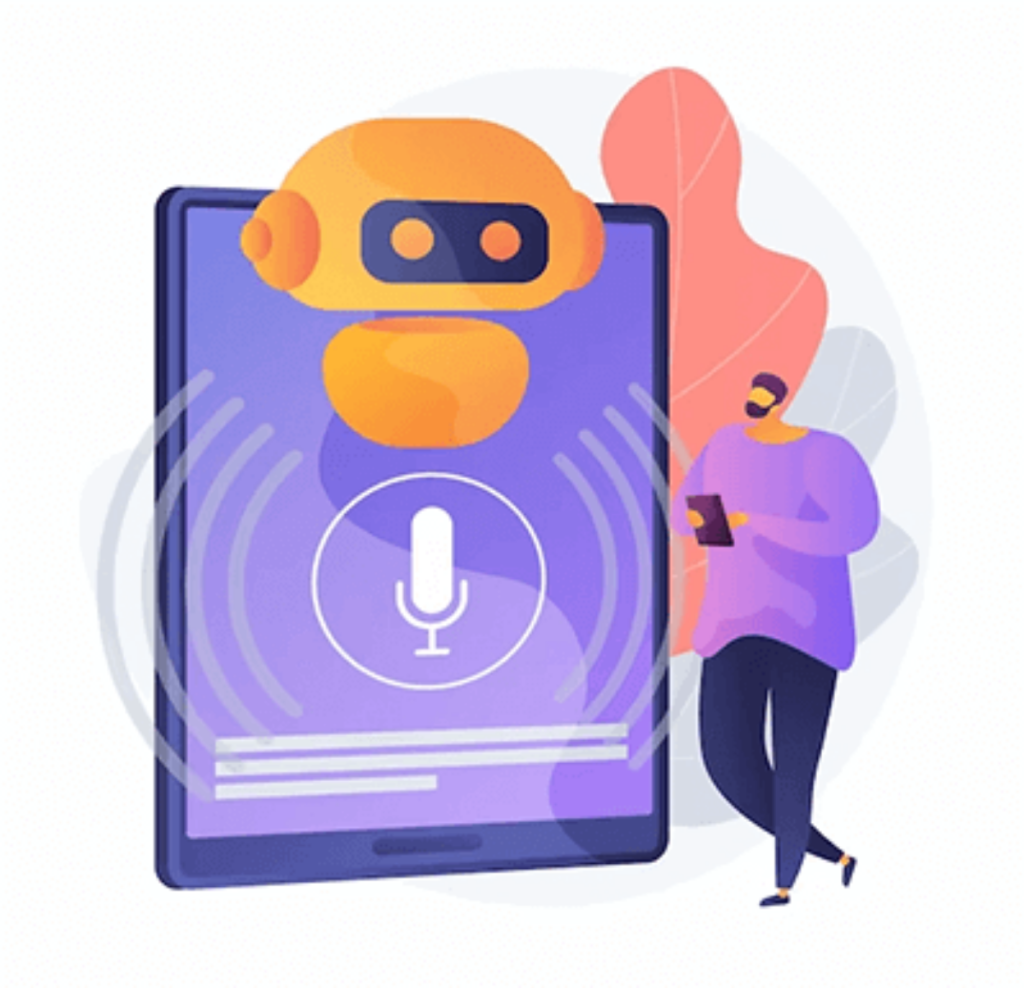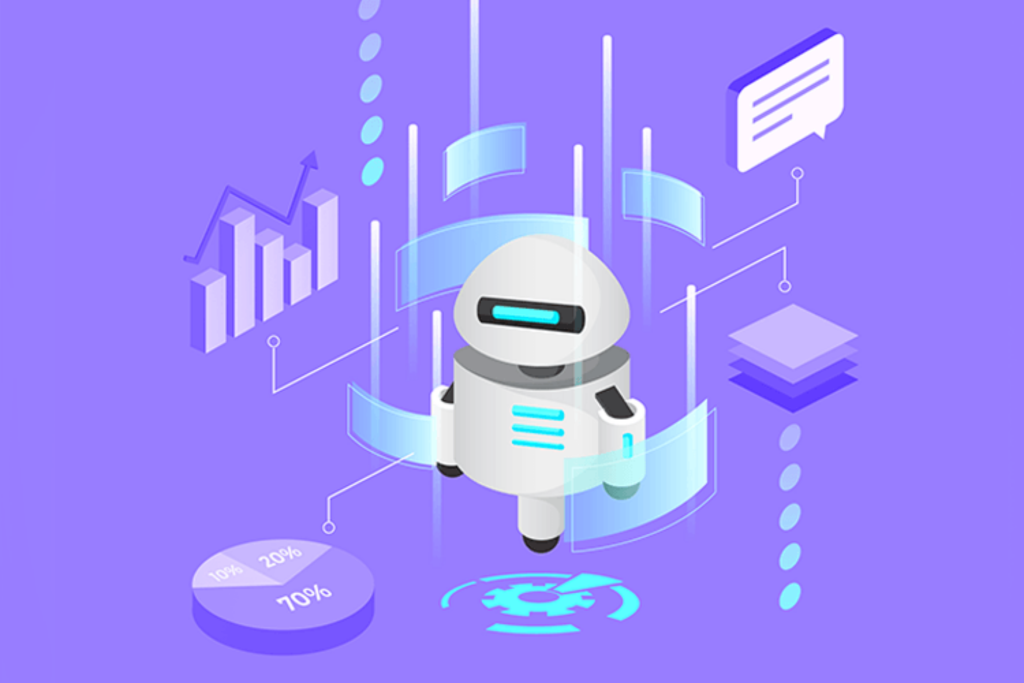

ACL Digital
How Intelligent Virtual Assistants are Revolutionizing Industries
An intelligent virtual assistant (IVA) is a software program that uses artificial intelligence (AI) to perform different activities or provide services for individuals in terms of the response or tasks given to them. IVAs are typically designed to understand natural language inputs and other techniques to respond to user requests using voice, text, or other communication channels.
As per the Grand View Research, Inc. report, the global intelligent virtual assistant market size is estimated to reach USD 14.10 billion by 2030, growing at a CAGR of 24.3% over the forecast period. The increasing adoption of virtual assistants in various industries such as home automation, healthcare/medical, retail, automotive, education and e-commerce is one of the major factors driving the growth of the market. They provide convenience, personalization, increased efficiency, cost-effectiveness, 24/7 availability, and improved user experience. We are expected to see more new use cases and advantages emerge in the near future as the technology underpinning virtual assistants evolves.
Key Technologies Used to Drive Intelligent Virtual Assistants
Intelligent virtual assistants are gaining popularity owing to their capacity to provide customers with personalized and efficient support. Let’s look into the technologies that power virtual assistants:
- Natural Language Processing (NLP): NLP allows IVAs to comprehend and interpret human language. This technology is used to interpret and analyze user requests, as well as to determine intent and extract essential details from text or speech. It may be used to play music, create reminders, and answer questions, among other things.
- Machine Learning (ML): ML is a constantly evolving and developing technology that enables IVAs to learn from human interactions and improve their responses over time. Data from prior encounters may be analyzed by Machine Learning (ML) algorithms to better understand user behavior and preferences, allowing IVAs to provide more personalized and relevant responses.

- Artificial Intelligence (AI): AI refers to the ability of machines to perform tasks that typically require human intellect, such as thinking, problem-solving, and learning. IVAs leverage AI to give personalised and context-specific responses to users.
- Speech Recognition: IVAs can understand and interpret spoken words via speech recognition technology. This technology is used to convert speech into text, allowing IVAs to process and analyze user requests. Speech recognition is also used for transcription and translation services.
- Natural Language Generation (NLG): NLG is a technology that allows IVAs to respond to user queries in a natural-sounding manner. This technology is used to provide personalized and appropriate replies to the user’s needs.
- Internet of Things (IoT): The integration of IoT with a virtual assistant, enhances the capabilities by enabling them to control and manage IoT-enabled devices, providing contextual information about the user’s surroundings, and delivering personalized recommendations and services.
Predominant Use Cases of Intelligent Virtual Assistants
- Home Automation: Virtual assistants play a significant role in the home automation industry by providing users with a voice-controlled interface to manage and control their smart home devices such as lights, thermostats, home appliances, security cameras and many more. Wireless technologies such as Matter, Wi-Fi, Bluetooth, Zigbee, Z-wave, Thread and many more allow the devices to communicate with voice assistants, such as Amazon’s Alexa, Google Assistant, or Apple’s Siri, using natural language commands. Voice assistants can also use machine learning algorithms to learn user habits and preferences, allowing them to automate actions based on the user’s behavior.
- Medical/ Healthcare: IVAs can assist patients by providing health advice, monitoring symptoms, and even scheduling appointments with medical professionals. This can assist to enhance patient outcomes while also reducing medical staff effort. Voice assistants do this through the use of various technologies such as machine learning, speech recognition, natural language processing and other. They may also be integrated with other healthcare technology, like wearables and health applications, to give a more comprehensive health management solution. For example, the patient can check their upcoming appointment with IVA or can schedule an appointment with a doctor. The patient can also track their health records or set workout reminders.

- Retail: Integration of IVA with retail solutions, helps customers by providing a more seamless and convenient shopping experience. Personalized recommendations to the customers based on browsing history or purchasing behavior using ML algorithm, managing orders and inventory, providing delivery updates and tracking returns & exchanges, AR-enabled virtual assistants to visualize products and take the purchase decision, providing in-store assistance, and enabling voice-activated shopping. The virtual assistant just not only improves the customer experience, but also increases sales, and improves efficiency in the retail industry.
- E-commerce: IVA helps users make purchases and order food delivery. These use cases rely on technologies such as natural language processing, machine learning, and e-commerce integrations. A voice assistant, for example, can employ machine learning algorithms to provide personalized product suggestions based on the user’s purchasing history.
- Automotive: Virtual assistants are increasingly being leveraged in the automotive industry to provide drivers with a more seamless and connected experience. Deliver a personalized user experience using ML algorithms, integrated with cloud computing infrastructure to process user requests and provide responses in real-time, in-car virtual assistants for finding directions, playing music, sending messages, and making phone calls, all through voice commands.
Virtual assistants have become an essential part of our everyday lives. With the evolution of technologies such as IoT, machine learning, artificial intelligence and many more, virtual assistants are becoming smarter and more intuitive, enabling them to deliver numerous benefits in today’s life, from improving productivity and convenience to enhancing the user experience and privacy.
Using ACL Digital in-house, customizable CENTAURI 200 IoT gateway, one can easily integrate virtual assistants such as Amazon Alexa with their IoT ecosystem. Read this blog to understand the process to be followed for integrating Amazon Alexa with CENTAURI 200 which enables the user to establish a suitable connected solution for their business needs.
Check out our success stories to learn more about our experience with ML/AI-based solutions.
Related Insights


